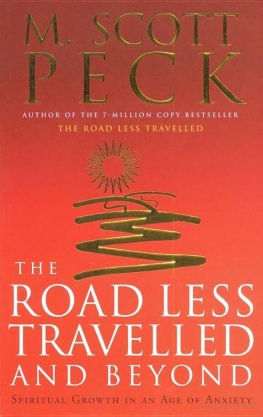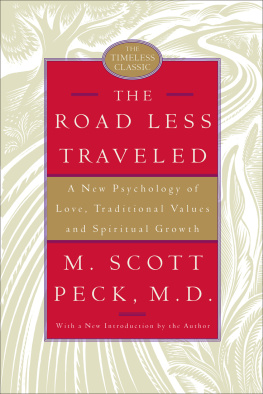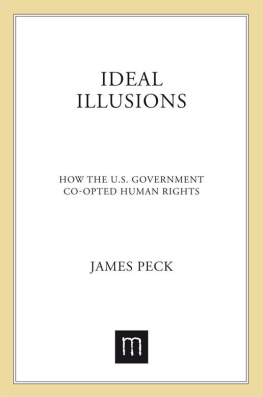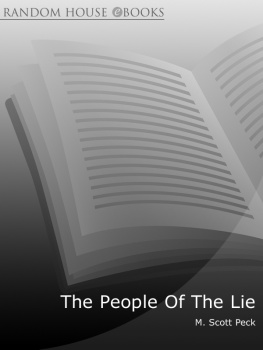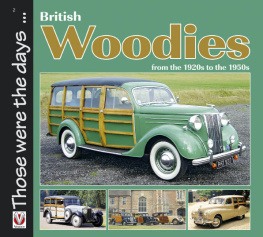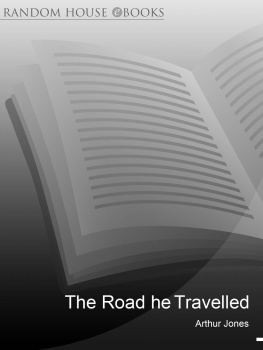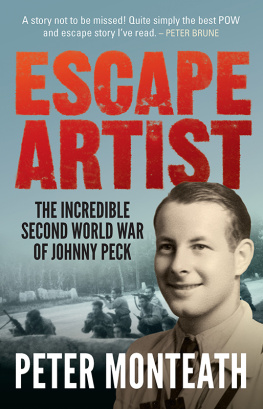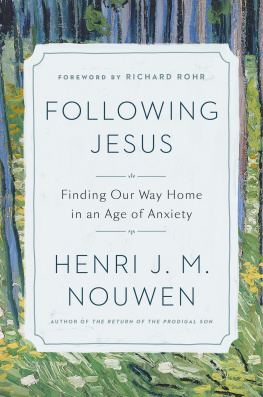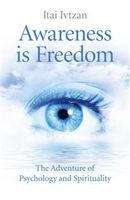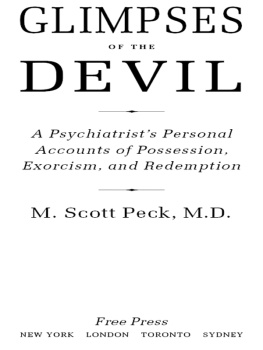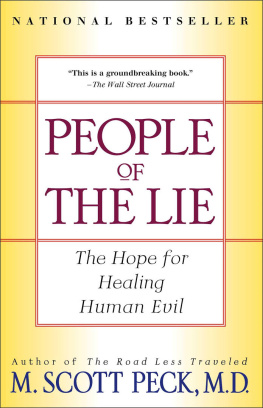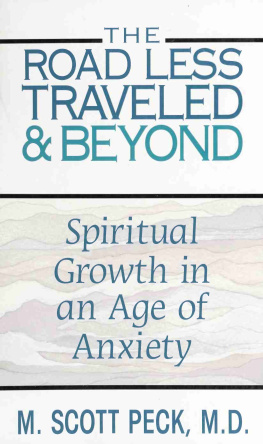Contents

About the Author

M. Scott Peck, M.D., is a psychiatrist and best-selling author of many books. Educated at Harvard (B.A.) and Case Western Reserve (M.D.), Dr. Peck served in administrative posts in the US government during his career in the Army Medical Corps, and was then a psychiatrist in private practice from 1972 to 1984. For the past thirteen years, he has devoted much of his time and financial resources to the work of the Foundation for Community Encouragement, a nonprofit organization that he and his wife, Lily, helped found in 1984. He lives in northwest Connecticut.
A LSO BY M. S COTT P ECK , M.D.
The Road Less Travelled
People of the Lie
What Return Can I Make?
(with Marilyn von Waldner and Patricia Kay)
(Republished with Marilyn von Waldner as Gifts for the Journey)
The Different Drum
A Bed by the Window
The Friendly Snowflake
(Illustrated by Christopher Peck)
A World Waiting to Be Born
Meditations from the Road
Further Along the Road Less Travelled
In Search of Stones
(Illustrated by Christopher Peck)
In Heaven as on Earth
Denial of the Soul
The Road
Less Travelled
and Beyond
Spiritual Growth in an Age of Anxiety

M. Scott Peck

to my fellow travellers
Introduction

I AM SIXTY years of age. That statistic means different things for different people. For me, since I am not in the best of health and feel Ive lived enough for three lifetimes, being sixty means that it is time I should start setting my affairs in order, as they say. It seems proper for me these days to be about the business of tying up loose ends of my life insofar as it is in my power to do so. I write this book in that endeavor.
I wrote The Road Less Travelled at the vigorous age of forty. It was as if a spigot had been opened, and other books have come pouring out ever since: nine, to be exact, not counting this one. Each time people have asked me what I hoped to achieve by a particular book, as if I generally had a grand strategy in mind. The truth is I wrote them not out of strategy, but simply because each book has said, Write me. However hard she might be to define, there is such a thing as a muse, and I have always and only operated under her orders.
So it is now, but I believe a more complex explanation is in order. One of those works, a collection of my edited lectures, is entitled Further Along the Road Less Travelled, as is the series of audiotapes from which it was developed. The title of this one makes it sound like The Road Less Travelled III. I worry the sound may be misleading. The fact is that my muse wont allow me to write the same book over and again no matter how commercially smart it might be to do so.
All of my books are quite different from each other. Yet not totally different. With the perspective of age Ive come to realize that in their own unique ways they have all been attempts to work out the same complex set of hidden themes. Looking backward, recently I discerned that I have been wrestling with these themes as far back as I can remember. At the time it felt as if The Road Less Travelled arose de novo when I was forty. Now I can see how Id begun work on it and my other books before Id even entered adolescence. Perhaps I was born working on these themes. Or perhaps I was born to work on them. I dont know.
What I do know is that the work was already in progress of a sort two decades before the publication of The Road Less Travelled. In late 1957 and early 1958, at the age of twenty-one, I wrote a college senior thesis with the egregious title of Anxiety, Modern Science, and the Epistemological Problem. Epistemology is that branch of philosophy which addresses the question: How do we know what we think we know? How do we know anything? The epistemological problem is that philosophers have never succeeded in answering the question. Many in the nineteenth century thought the answer lay in science. We could know things for certain through the scientific method. As my thesis pointed out, however, perhaps the single most important discovery of modern science has been that there are limits to scientific inquiry. With a few ifs, ands, and buts, there is no more real certainty to be found in science than in theology. Yet uncertainty breeds anxiety. It is scary when our best minds are those who best know that they dont know. This is why W. H. Auden referred to our century as the Age of Anxietya time when the Age of Reason has proved to be just as unsettling a period as the Age of Faith.
My college thesis provided no answers, only questions, and one way or another those same questions are echoed in each and every one of my books. A major theme of all of them is the encouragement of the greatest possible range of thought in our search for their answers. Thus the third of the four sections of The Road Less Travelled concludes: But just as it is essential that our sight not be crippled by scientific tunnel vision, so also it is essential that our critical faculties and capacity for skepticism not be blinded by the brilliant beauty of the spiritual realm.
Once I put that college thesis behind me (or so I thought), I got on with the business of real life: medical school, marriage, children, specialty training in psychiatry, military and government service, and eventually private practice. Yet, without knowing that onemuch less manybooks would eventuate, I was beginning, almost unconsciously, to develop some cautious, tentative answers to my own questions. When enough such answers had accumulated, it came to me twenty years later to write The Road Less Travelled. And, as they continued to accumulate, I went on to write what I thought were very different works.
They are very different. Yet whether for adults or children, whether focused upon the individual or society, whether fiction or nonfiction, they all may be looked upon in part as elaborations of one or more of the key concepts in The Road Less Travelled. As elaborations they carry those concepts further; they look deeper; they go beyond. This book is entitled The Road Less Travelled and Beyond because it ties together many of the ways in which I have been pushedoften stumblingto move beyond my first book in both my public writing and my personal journey over the past twenty years.
Some may consider this book a compilation, a compendium, or a summary of all my published work, but those words are inadequate. In writing the book, I found that I had to be quite selective. Synthesis would be a more adequate description, but still fails to capture the beyondness of the book. For in addition to tying up loose ends, I wanted to break new ground as well. I have been powerfully assisted in doing so by a quote attributed to Justice Oliver Wendell Holmes, Jr., who once said: I dont give a fig for the simplicity of this side of complexity, but I would die for the simplicity on the other side. His profound sentiment has led me to organize this work into three sections.
In Part I, Crusade Against Simplism, I decry the primitive and effortless simplistic thinking that lies at the root of so much individual and societal sickness.

